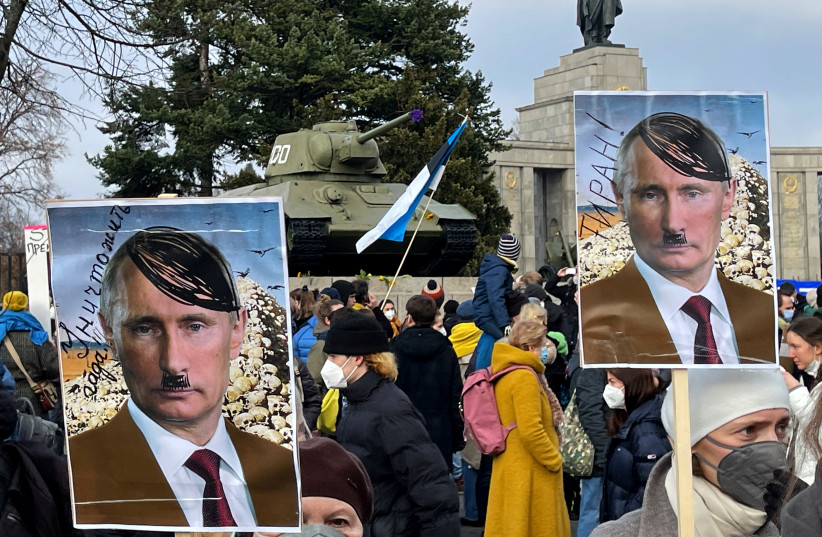Russia is "restoring its unity" and providing a "solution to the Ukrainian question" in its invasion of Ukraine, reads an opinion piece that was seemingly published by accident by Russian news agency RIA Novosti before being quickly taken down. The article was recorded by the Internet Archive's Wayback Machine before it was taken offline.
"A new world is being born before our eyes," wrote Petr Akopov in the article. "Russia's military operation in Ukraine has ushered in a new era — and in three dimensions at once. And of course, in the fourth, domestically. Here begins a new period both in ideology and in the very model of our socio-economic system."
Echoing similar statements made recently by Russian President Vladimir Putin, Akopov referred to the 1991 declarations of independence by Belarus and Ukraine as a "terrible catastrophe" and an "unnatural dislocation."
"Russia is restoring its historical fullness, gathering the Russian world, the Russian people together — in its entirety of Great Russians, Belarusians and Little Russians (a term used before the 20th century to refer to what is now Ukrainian territory)," continued the article.
"Vladimir Putin has assumed, without a drop of exaggeration, a historic responsibility by deciding not to leave the solution of the Ukrainian question to future generations," wrote Akopov.

Akopov added that the "question" needed to be solved for two "key reasons." The first reason is the "complex of a divided people," which he described as "when the Russian house first lost part of its foundation (Kiev), and then was forced to come to terms with the existence of two states, not one, but two peoples."
The second reason is to prevent Ukraine from being anti-Russian and an outpost for the West.
Akopov stressed that Ukraine's statehood would not be liquidated if Russia succeeds in its goals, but would instead be "reorganized, re-established and returned to its natural state of part of the Russian world."
The author theorized about the boundaries of the "alliance" with Russia, offering the Collective Security Treaty Organization (CSTO), which includes post-Soviet states in Central Asia, the Eurasian Economic Union or the Union State of Russia and Belarus. "This will be decided after the end is put in the history of Ukraine as anti-Russia. In any case, the period of the split of the Russian people is coming to an end," wrote Akopov.
The article added that Russia, Belarus and Ukraine would act as a single unit in terms of geopolitics and that the West was "indignant" as it saw a "return of Russia to its historical borders in Europe."
"The West as a whole, and even more so Europe in particular, did not have the strength to keep Ukraine in its sphere of influence, and even more so to take Ukraine for itself," wrote Akopov, adding that Europe's era of "global leadership is over."
Akopov wrote that a "new world order" was being constructed, creating a "multipolar world."
"China and India, Latin America and Africa, the Islamic world and Southeast Asia — no one believes that the West leads the world order, much less sets the rules of the game," wrote Akopov. "Russia has not only challenged the West, it has shown that the era of Western global domination can be considered completely and finally over. The new world will be built by all civilizations and centers of power, naturally, together with the West (united or not) - but not on its terms and not according to its rules."
The article echoes statements made by Putin in speeches on February 21 and 24, where he denounced the West for aspiring to "global dominance" and complained about Ukraine becoming "anti-Russia." In a speech on February 21, Putin referred to Ukraine as "historically Russian land" and called the granting of sovereignty to Soviet republics "truly fatal" and "historic, strategic mistakes."
Putin has also called the Ukrainian government "Nazis" and accused it of committing genocide against Russian-speaking citizens. Ukrainian President Volodymyr Zelensky is Jewish and lost relatives in the Holocaust.
